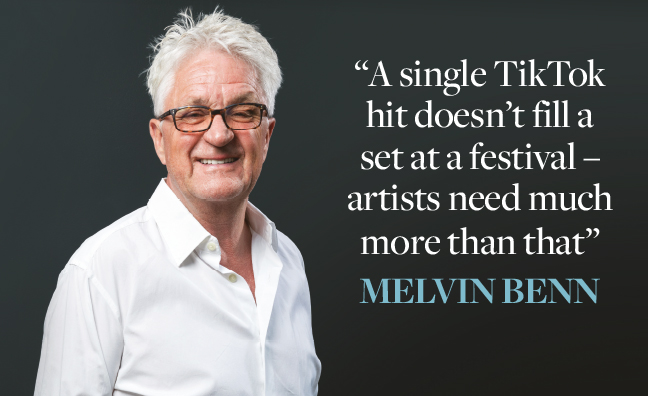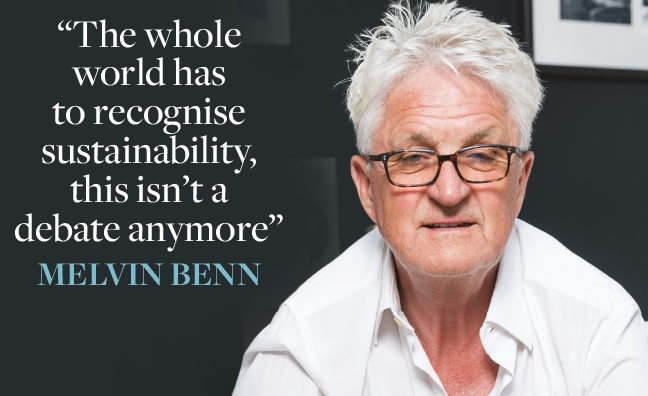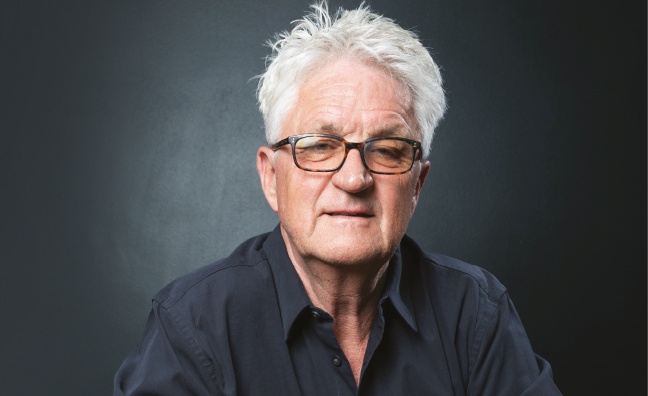Reading & Leeds Festival is back this Bank Holiday weekend for another blockbuster edition.
Headliners this year include Sam Fender, Foals, The Killers, The 1975, Imagine Dragons and Billie Eilish, who currently has the No.1 single with What Was I Made For? from the Barbie soundtrack.
Further down the bill, there are rising stars in guitar music such as Lovejoy, as well as UK rap talent like Knucks and Central Cee, viral pop star Mae Stephens, breakthrough singer-songwriter Holly Humberstone, and dance duo Sigma playing a simultaneous silent disco across both Reading & Leeds on Sunday night, plus dozens more.
Reading & Leeds 2022 was named Festival Of The Year at the Music Week Awards in May, as the category returned following the shutdown of live music brought about by the pandemic.
“For me, Reading and Leeds are the best music festivals… they really are pure music festivals,” Festival Republic MD Melvin Benn, who's in charge of Reading & Leeds, told Music Week. “It’s a very young audience, the most optimistic audience. Reading and Leeds is the festival of the future.
“They’ve just finished their GCSEs or their A-Levels, they’re our future doctors, politicians, nurses, police officers, engineers and scientists. None of them necessarily know who they’re going to be, but I love the fact that so many of them will end up in really amazing positions in their lives and will have gone to Reading and Leeds at the cusp of their adulthood and, I’m certain, in the main will have really fond memories of it.”
Here, the festival boss talks talent, TikTok, diversity in line-ups, and more…
Looking ahead to Reading & Leeds, what do you expect will be the stories of this year’s festival?
“I think Billie Eilish is just unbelievable, and I think Central Cee will turn out to be a big, big winner for us – what he’s doing is pretty amazing.”
Did 2022 make for a tough act to follow when it came to booking this year’s headliners, which don’t match up in terms of representation?
“I think every year is difficult in that sense. We clearly have to book according to what is available and what’s relevant. The two things that really govern it are the relevance and the availability. Acts are not working all of the time. There are a lot of variables going into what is available to people at any one time. In truth, it’s never an easy thing to book a festival, literally no matter what the festival.”

Did you anticipate a backlash to this year’s headliners in terms of the reduced diversity compared to 2022’s line-up (including Megan Thee Stallion, Halsey and Dave)?
“Yeah, of course, that will be inevitable in that sense. But as I say, we worked really hard to get full diversity, especially women headlining. If they’re not working and they’re not touring, it is just impossible and the reality is there’s just less women available to headline festivals. That’s the reality of it. We’re working to change that, we work really hard on other festivals, on smaller festivals to give people an opportunity to be taking those steps up but, at the same time, artists take those opportunities when they’re ready for it and if they’re male or female, black or white, the artists take the opportunities when they’re ready. If they take the opportunities when they’re not ready, it may not be good for their careers and we have to be careful of that, too.”
There has never been so much focus on representation on festival line-ups as there is now. Do you think it’s right that the live sector should be publicly scrutinised or is it unfairly under the spotlight?
“We are scrutinised not just unfairly but singularly unfairly. In the main, as music promoters, what we do is endeavour to put on the stage what people are listening to. If we put things on the stage that people are not going to listen to, and are not listening to, they’re not going to buy the tickets. As promoters, we’re relatively simple creatures, our dedicated aim is to give the ticket buyer what they want to come and see, it’s a really simple philosophy. We as festivals and as music promoters tend to reflect the audience tastes, rather than direct the audience tastes. Radio has a greater ability to direct audience tastes than we have, we can only reflect them.”
Do you think the UK is generating enough headline talent at the moment versus what’s coming out of the US?
“The answer to that has to be yes. Two out of the three Glastonbury headliners were UK acts, three out of six at Reading and Leeds are UK acts, three out of the three at Latitude were UK acts, three out of the three at Wilderness were UK acts, well one’s French albeit UK-based [Christine & The Queens]. If you look across festivals as a whole, there are more UK headliners than US headliners. Wireless has a greater propensity of US artists than UK artists because of the nature of the music. But if I was to look across all of the festival headline positions, the UK is very much the strongest generator of headliners.”
To what degree is TikTok hype a consideration for booking now alongside chart and touring success?
“A huge hit associated with a TikTok performance for new artists is massive for them, and it is really important exposure, more and more so. But a single TikTok hit doesn’t fill a set at a festival. They need much more than that. That’s why I go back to the idea that artists need time in front of audiences to learn the craft. If you look at artists like The 1975, who amazingly stepped in for us last year [after Rage Against The Machine pulled out two weeks before Reading & Leeds] and were just outstanding, they couldn’t have done that on the back of a TikTok. They did that on the back of constantly working on performing and writing songs and learning who their audience are. TikTok is really important, but it’s not the be-all and end-all.”

A big part of the Reading & Leeds 2022 campaign was not just the line-up, but the progressive environmental values it exhibited. What else is Festival Republic doing right now to make your events greener?
“My big push at the moment, as well as all the usual stuff, is to get mains electricity into the festival sites. What was previously the Guest Campsite at Reading is actually going to become a new Academy school and that’s given us a real opportunity with the power companies, because they need major electricity to come into the school that isn’t there at the moment and we’re able to work with them to get major electricity into there.
“Then I’m looking at solar panels and wind turbines for Leeds. It’s much more rural and getting mains power is a little more challenging. Single use plastic is gone, we’re going to canned water as opposed to water in plastic bottles, we feel very positive about that. It’s ongoing. Obviously, festivals are by no means the biggest emitters of carbon in general society terms, but at the same time, we have a responsibility to be doing our bit in the same way that everybody else should have that responsibility. I do think that we are trying to lead in that sense.”
So do you feel that the rest of the music industry is being as proactive as you are?
“I do, yeah. I don’t see any aspects of the industry that isn’t becoming proactive, touring bands are doing it the same. I was at Depeche Mode’s show in Malahide Castle in Dublin and they’ve got sustainability at the heart of their tour, they’ve got a sustainability person travelling with them. I think the whole industry is recognising it because the whole world has to recognise it. This isn’t a debate anymore.”
Subscribers can read the full interview here.









